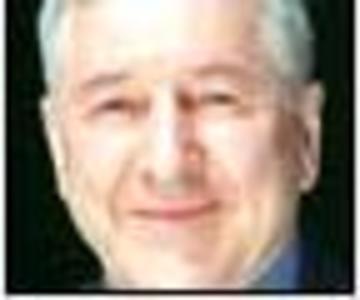Déjà vu? At a wrap-up round table Saturday on the Liberal convention in Monrtreal, my fellow panellists from Le Devoir and La Presse discoursed about the shock felt by almost all Québécois delegates over the election of Stéphane Dion.
Mr. Dion was simply unacceptable in Quebec, they had repeated. His Clarity Act on secession was seen as anti-Quebec. His election was a disaster for the liberal party. Some delegates now proposed even to cross to the Conservatives.
I'd heard it all before and suddenly it came back. When Pierre Trudeau won the Liberal leadership in 1968, Quebec's political class was shocked and appalled. Mr. Trudeau was a traitor to Quebec. He supported ‘One Canada' as opposed to a new Canada rebuilt on two nations or two founding peoples. He rejected ‘special status' for Quebec that, a consensus held, was the minimum moderate position. He stood outside the pale of responsible leadership.
Mr. Dion, at his first press conference Sunday, was assailed by journalists who asked sceptically how he could think if winning acceptance in Quebec. Monday, in Le Devoir, publishers [Bernard Descôteaux->3192] warned editorially that ‘the delegates were mistaken in thinking that the new leader's Québécois roots would guarantee renewed success in Quebec. Despite what Stéphane Dion told them during the campaign, there is a gulf between him and the Québécois.
In La Presse, René Lévesque's former chief of staff, [Martine Tremblay,->3183] applied the old charge made against Mr. Trudeau, that he was an Uncle Tom used by the rest of Canada to keep Quebec in its place. With Mr. Dion, ‘the weight of Ontario and some Anglophone ridings in Montreal will perhaps again succeed, as they hope, to elect a Liberal government. After all, it's so much simpler when you can do without francophone Quebec.'
The opinion poll in the Globe and Mail, showing that 62% of Quebecers consider Mr. Dion ‘a good choice' -more than in any other province- illustrates again the gulf between the chattering classes and the people.
But the paradox goes further. Mr. Dion, on every issue but two, was closer to the views of Quebecers than any other candidate. Even on his rejection of ‘fiscal imbalance' and the Quebec Liberal resolution recognizing Quebec as a nation, the differences are semantic and tactical, not fundamental.
Mr. Dion opposed arbitrary federal intrusions into provincial areas of jurisdiction and favours the provinces having a greater share of public money, through equalization. He supported Meech Lake and recognizes the Québécois as sociologically a nation. But he objects that public opinion has been so confused by ideologies that a showdown now on recognizing Quebec could only be destructive.
For many Quebecers, the Dion-Gerard Kennedy coalition stirs reassuring memories of happy days when Quebec and Ontario were strategically united - think of Lafontaine and Baldwin, Macdonald and Cartier.
The paramount significance of Mr. Dion's accession is that, henceforth, the question of Quebec's status can no longer be fogged in confusion and dangerous misrepresentation as it was by Brian Mulroney, Robert Bourassa, Daniel Johnson, Jean Chrétien, Paul Martin and Jean Charest. Mr. Dion is like Pierre Trudeau and Stephen Harper, all three clear thinkers who chose clarity on the fundamentals of the state over partisan advantage.
Quebec will hold elections next year and the Parti Québécois could well form the next government. That would immediately put front and centre the issue of secession, and the conditions under which it could - or could not - be effected in a country built fundamentally on the rule of law.
Both Mr. Harper and Mr. Dion have already put their cards on the table : Mr. Harper by a wonderfully clear and comprehensive private member's bill in 1996, and Mr. Dion by the Clarity Act passed in 2000. Both agree that secession can only be obtained in accordance with the rule of law, through an amendment to the Constitution. A revolution, by any other name, is out of the question.
Before the Clarity act was adopted in 2000, then-premier Lucien Bouchard mounted an immense campaign to raise public opinion against this outrageous putsch to lock Quebecers in a federal prison. Despite all his oratorical fireworks and a fortune spent on media ads, his campaign failed. In the 2000 federal election, the liberal vote in Quebec increased by seven percentage points over 1997 to 44.2 per cent, beating the Bloc québécois's 39.9 per cent.
Two months later, discouraged, Mr. Bouchard announced his resignation.
With these two federal leaders in place, Stephen and Stéphane, a new referendum on secession would likely have only one result: the definitive discrediting of secession as a credible alternative in the minds of most Quebecers.
Why Dion can win in Quebec
S. Dion, chef du PLC

William Johnson53 articles
William Johnson, a Quebec journalist, is a former president of Alliance Quebec






















Laissez un commentaire Votre adresse courriel ne sera pas publiée.
Veuillez vous connecter afin de laisser un commentaire.
Aucun commentaire trouvé